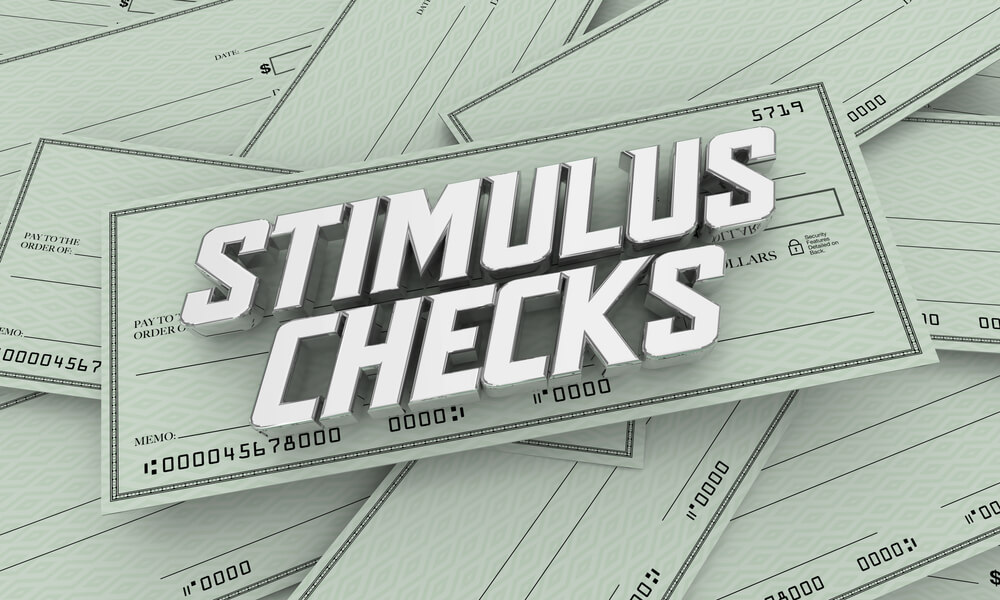Chances are good you’ll get a stimulus check in the coming days. Nearly 160 million Americans can expect checks of up to $1,400 after President Joe Biden signed off on the latest $1.9 trillion COVID-19 relief package recently.
I don’t know how much sense the stimulus checks make. They’re not big enough to make much of a difference in the lives of the average American, yet they’re plenty big enough to blow out the budget deficit further.
But no one asked what I think. The checks are coming. What do you plan to do with yours?
If you’re struggling after a job loss, you’ll likely spend the cash on necessities like your house payment or utilities. But for most Americans, the COVID-19 pandemic represented an inconvenience, not a major financial setback. So, you could blow that extra money on a trip to Disney World. Or you could get a head start on your savings for 2021.
Let’s talk about three ways you can use your stimulus checks to further your financial goals.
Dump it Into Your 401(k)
If you’d like to get a jump-start on maxing out your 401(k) in 2021, tell your HR department to increase your 401(k) contributions by $1,400 over the next paycheck or two. You can then spend the $1,400 stimulus check on your day-to-day expenses that your paycheck would normally cover.
You can contribute up to $19,500 to a 401(k) plan this year, not including employer matching. That number jumps to $26,000 if you are age 50 or older. That $1,400 won’t get you anywhere near maxing out, but it’s a nice start.
If you don’t have access to a 401(k) plan at work, that $1,400 is a great way to jump-start your IRA contributions. You can contribute up to $6,000 to an IRA or Roth IRA in 2021 or $7,000 if you’re 50 or older. And if you haven’t already filed your taxes, you can still contribute for 2020 as well. You have until April 15.
Remember, “401(k)” does not necessarily mean “stocks.” If you aren’t feeling the love in the stock market right now, that’s OK. Get the money into the account to take advantage of the tax break and the employer matching. You can always leave the cash in the money market or stable value option.
Use Your Stimulus Check to Take a Little More Risk
Let’s say you already have a plan for your 401(k) or IRA this year. Good for you! You’re ahead of the game.
You might take that stimulus check and do something a little more aggressive with it. We recommend quality stocks every day at Money & Markets, but we reserve our favorites for our paying subscribers to Green Zone Fortunes. If you want to learn more about how Adam and I use momentum to “buy high … sell higher” in Green Zone Fortunes, check out the details of Adam’s Millionaire Master Class here.
And if you want the opportunity to juice your returns, Adam has options plays he reserves for his readers of Home Run Profits.
The key here is doing something fundamentally different. This is new money — effectively a gift — so you have the luxury of leaving your comfort zone. It may be a while before that opportunity comes around again.
Make an Extra House Payment
Ok, let’s say you have the 401(k) covered, and you already have enough cash at work in the market. That’s great! Rather than blow the stimulus check on something you don’t particularly need or want, consider using the cash to make an extra house payment. Payments you make outside of your normal monthly payments go straight to principal. And if your mortgage is relatively new, making the occasional extra payment today has an outsized impact on your repayment schedule. An additional payment now could help shave months, or even years, off your mortgage.
If you’re paying 3% on your mortgage, you “earn” 3% on any cash you use to pay down your mortgage. That’s not making it rain by any stretch, but it’s better than what you’ll find in the bond market.
Finally, there’s still the Disney World option. If you’ve been itching for a vacation and you already have your investments and mortgage under control, you might as well book that ticket to Orlando.
To safe profits,
Charles Sizemore is the editor of Green Zone Fortunes and specializes in income and retirement topics. Charles is a regular on The Bull & The Bear podcast. He is also a frequent guest on CNBC, Bloomberg and Fox Business.
